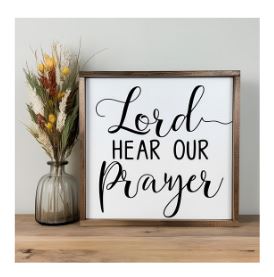A Word On Our Daily Prayers For Autism’s Belonging in the Body of Christ
Those who are praying along with our daily intentions this Lent will notice that each day’s prayer examines an aspect of neurodiversity which many may not have considered. We are seeking to shift the stereotyped sense of autism as problematic symptoms and misbehavior toward a deeper realization that autistic expressions are very human, very functional ways people respond and attempt to cope when our processing system is flooded. Most people know what it’s like to feel overloaded. The difference is, autistic people’s processing systems reach capacity at a higher frequency, and overload when we are asked to keep pushing. Our bodies absorb every bit of data from our surroundings at once, filling all available processing slots quickly to capacity without the benefit of extra time to sort it all out. As with the famous chocolate factory scene from “I Love Lucy”, we do what we can to keep up, but pretending we are fine only makes things worse. Unless that conveyor belt slows down or we get the support we need to finish, we know how this is going to end. Except – for autistic people – we’re not laughing. More like, it is devastating, each and every time. It is exhausting. It is humiliating to have to ask for help, all the time… and, it’s even more so when we are met with those who think the way to help us is to shape our behavior for us. “Try harder! You can do it if you really apply yourself!” – No. We can’t.
But here’s what we want to convey: Any person’s capacity to participate in anything – including social activities, learning environments, and worship services – requires the ability to process information and engage with others. When our sensory systems are bombarded with more input than we can process, autistic or not, our bodies shift from relaxed participation to high alert. If we do not take time and space to catch up with what we are already processing, our fight/flight/freeze reflexes start acting like circuit breakers, systematically shutting down extraneous processes (such as social graces, small talk, and creative thinking) as a last-ditch effort to keep our processing afloat. Most of us can recall a time when we felt frazzled by too many people speaking at once or too many demands coming in at the same time. If someone approaches us right then with a bit of unrelated conversation or unsolicited advice, we can well imagine what our response might look like… and, most neurotypical people would make plenty of allowance for why this is reasonable. Why, then, is it unreasonable when autistic people experience this (which we do)? Hint: It’s not unreasonable. It just happens more frequently, and more intensely, because our loads are constantly full, and traditionally, people have been told to “help” us by making us struggle. These prayers are intended, in part, to show the other side of this.
The crucial point to remember: Neurodivergent minds are flooded with simultaneous processing tasks, all the time. The way we look, sound, act, and cope, is a reflection of how well – or not – we are able to keep up with those processes at any given moment.
Corollary: The degree of assistance, patience, and accommodations we receive from others around us helps determine the ease with which we can participate and engage with others.
Autistic people deal with this all day, every day. It is not something that can be trained out of us. We can’t be cajoled into doing better. We look and act the way we do because we are at capacity, all the time, even when other people are not.
Why do we take such deliberate care in phrasing our intentions? In hopes of helping the wider Church see that autistic traits are not moral failings, and are not conquerable with the right attitude. Autistic traits are expressions of the same Body of Christ in which we are all members. Our experiences are more intense, and our capacities are reached sooner and more frequently than neurotypical members. The point to remember is that our needs are the same human needs as the rest of the Body – not subhuman needs, as original models of autism would lead us to believe, and not willfully lazy, self-absorbed, oppositional, or anti-social.
The extra time, extra space, extra patience, and gentler environments which autistic people utterly need to participate in ordinary things of life are arguably conditions which benefit anyone. Who among us does not feel a bit of relief when someone shows us empathy and helps us out when we are struggling? Which then begs the question: why are so many people so reluctant to allow these things? Why is slowing down, making things easier, and softening the sensory environment seen as “giving in” instead of giving the Body an oasis of desperately needed neurological rest, where all of us – including and especially autistic people – can heal?
Lord, Hear Our Prayer!



